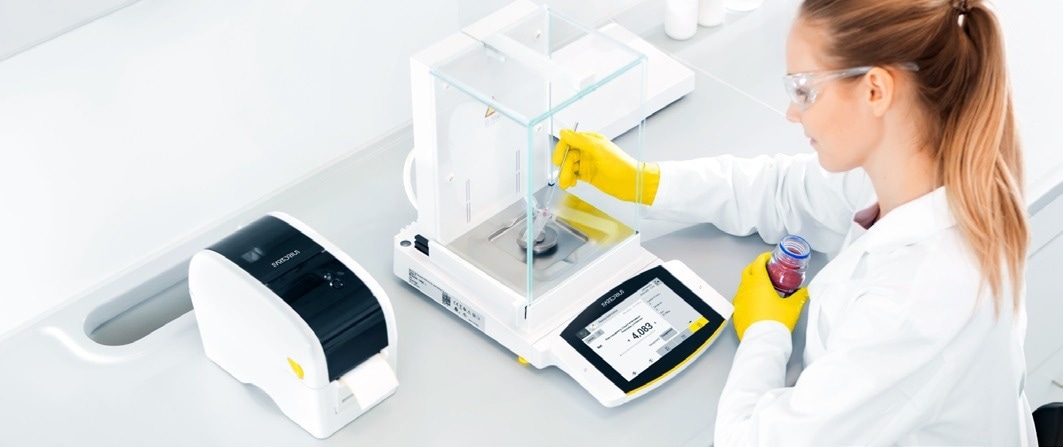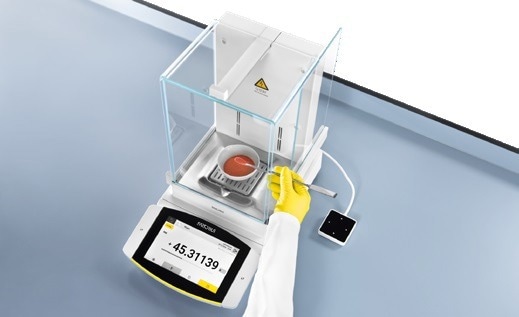Sponsored Content by SartoriusReviewed by Alex SmithMar 13 2023
Data integrity regulation compliance starts with any data-generating instruments and continues through lab systems.

Image Credit: Sartorius
Data integrity for labs
The present world of digital transformation, streamlining workflows, enhancing operational efficiencies, and eliminating paper demands connected workflows with fully integrated systems and equipment.
Preserving data integrity is a primary concern, especially as auditors increasingly require fully electronic data handling to increase security, adding to the digitalization trend.
A growing regulatory network impacts an expanding number of labs connecting to the highly regulated biotech, pharmaceutical, life science, and food industries, e.g. the fine chemical companies providing pharmaceutical and biotech product pipelines.
Non-compliance may cause product recalls, shutdowns, or delayed drug approvals, which is expensive and risks the organization’s reputation. The task of continuing compliance centers on the requirement for improved data handling.
Data integrity measures that guarantee the correct recording and processing of data help to improve workflow automation, reducing errors typical of manual or hybrid data entry, such as data breaks and transcription errors.
These measures increase efficiency, reproducibility, and time and cost savings, affecting critical timelines, such as time to market and discovery time. Removing the need to repeat work due to inaccurate data or reporting allows organizations to remain competitive.
Protecting data integrity
Compliance with the FDA 21 Part 11 CFR guidelines, and the EU Annex 11 in Europe, necessitates all electronic instruments in the lab to have supporting features within either native OEM software or third-party bridging software.
Features that support compliance include access control with personalized user and role management, audit trails, data backup, electronic signatures, and safe data transfer options for electronic lab notebooks (ELN), laboratory information management systems (LIMS), or other system integrations.
Most violations of FDA 21 Part 11 CFR guidelines, highlighted by warning letters from the FDA, evolve from data integrity issues (79 percent). Most concern access and role management, improper data handling, missing or incomplete audit trails, or failure to adhere to procedures.
Personalized user accounts that restrict access to functions specific to the user’s role are essential to satisfy access control and user traceability guidelines. Frequent violation arises from utilizing a universal account, often with administrative permissions that enable users to manipulate or change data.
Maintaining comprehensive audit trails is crucial and necessitates backups of all data produced, irrespective of whether the data is correct. Full traceability demands documentation of every instrument-related event, including adding new users or altering operational settings.
Non-conformance to audits also occurs due to transcription errors when data is manually entered into LIMS and ELN.
Starting with a top-down systems perspective of operations helps to guarantee compliance is retained throughout the lab by recognizing gaps in data integrity measures and adopting a quality culture focused on compliance.
Concentrating mainly on specific software or instruments will likely lead to overlooking other critical systems or difficulties where systems interface.
The top-down attitude confirms start-to-end traceability by first recognizing all GxP-relevant processes in the lab, followed by sub-processes, then individual actions with standalone systems and instruments.
Although analytical equipment is usually top-of-mind when contemplating data integrity measures, a comprehensive assessment of processes generally identifies supporting lab equipment that needs to be included for full traceability.
For example, lab balances are critical to data accuracy but are often overlooked or only considered alongside the implementation of third-party software.
The value of instrument-based compliance support features
Some lab instruments have native compliance support, removing the middleware requirement, reducing operating costs, and simplifying qualification processes.
Incorporating data integrity features on an instrument, e.g. a lab balance, enhances data quality, removes the ability to falsify process data or signatures, facilitates control to the entire lab process, and decreases costs associated with rework.
When obtaining new electronic lab equipment, considering the current and future requirements of the lab during the digitalization process helps to inform purchasing decisions.
A compliance-ready instrument must have comprehensive audit trail features, technical control features, and effective and compliant connection to ELN, LIMS, and alternative IT systems.
FDA guidelines regarding data integrity demand that data is complete, consistent, and accurate, and advise adhering to the ALCOA framework: attributable, legible, contemporaneously recorded, original or a true copy, and accurate.
Instruments may be evaluated entirely utilizing the 21 CFR Part 11 compliance checklist below.
What does compliance support look like on an instrument?
The design aspects needed for onboard compliance support can be demonstrated by utilizing the Sartorius Cubis® II lab balance. Designed with the ALCOA framework in mind, the Cubis II with the QApp pharma package includes all technical control features necessary for following the CFR Part 21 and Part 11 guidelines.
A complete explanation of these features and how they allow compliance support follows.
Guaranteeing that data is attributable necessitates the inclusion of metadata, such as balance ID, user ID, date and time, sample and batch information, software version, etc.
This depends on complete user management and access control, which the Cubis II offers via local and centralized “single sign-on” user management options. Password and login security measures can be set in line with company policies.
Final weighing reports, including the relevant metadata, may be printed or electronically exported with electronic signatures attached, which are associated with secure username and password combinations. Complete traceability is accomplished with audit trails and advanced reporting.
Audit trails comprise complete, time-stamped, tamper-protected data files that include all events relating to record creation, modification, and deletion. The Cubis II is designed to produce this data in filterable, exportable reports that are simple to read and understand.
In addition, the Cubis II keeps separate, immutable records of the most recent 150,000 datapoints in weighing data raw (“Alibi”) memory. Data must be recorded at the time of generation with accurate timestamps that are traceable to UTC.
The Cubis II proposes automatic time synchronization with network time protocol to guarantee accuracy in metadata. Origin, content, and meaning are maintained through file metadata and preserved utilizing a calculated MD5 checksum for each file by the Cubis II.
This enables other IT systems, such as LIMS, to confirm the trustworthiness and authenticity of data files. Ensuring data is complete and accurate also demands correct documentation of all errors and corrections.
The Cubis II permits users to identify incorrect datasets and add any clarifying comments. Invalid datasets are displayed clearly with crossed-out text accompanied by the correct dataset. Complete compliance involves long-term data storage systems and additional procedural controls in the lab.
Data backup and archives are essential for protecting data in the short and long term. Cubis II backups can be automatically scheduled, including audit trails, log files, printouts, configuration data, and Alibi memory. IT may easily carry out archival in a compliant way, as records are readable without system-specific software.

Image Credit: Sartorius
Safe data transfer is vital for confirming unbroken data integrity across systems. The Cubis II enables secure data transfer via numerous options, such as SMB (Windows file server protocol), FTPS (secure file transfer protocol), or external hard drive connection.
It integrates easily with existing IT infrastructure, securely connecting to LIMS, ELN, and LDAP (Lightweight Directory Access Protocol) servers. Complete compliance also relies heavily on human behavior.
The Cubis II also aids compliance with safety features such as the “safe weighing” settings and QApps (quality assurance project plans), offering clear user guidance. This involves tolerances, limits, and best practices for reliable weighing results.
Data integrity guideline compliance entails accurate recording, archival, and data sharing. As digitalization changes, lab operations and regulations develop and grow, it is increasingly critical for labs to employ solutions that meet current and future operational needs.
Implementing measures to safeguard data integrity supports organizations in meeting regulatory requirements and improving workflow efficiency and reducing costs.

 Download the full application note
Download the full application note
About Sartorius

Sartorius is a leading international pharmaceutical and laboratory equipment supplier. With our innovative products and services, we are helping our customers across the entire globe to implement their complex and quality-critical biomanufacturing and laboratory processes reliably and economically.
The Group companies are united under the roof of Sartorius AG, which is listed on the Frankfurt Stock Exchange and holds the majority stake in Sartorius Stedim Biotech S.A. Quoted on the Paris Stock Exchange, this subgroup is comprised mainly of the Bioprocess Solutions Division.
Innovative technologies enable medical progress
A growing number of medications are biopharmaceuticals. These are produced using living cells in complex, lengthy and expensive procedures. The Bioprocess Solutions Division provides the essential products and technologies to accomplish this.
In fact, Sartorius has been pioneering and setting the standards for single-use products that are currently used throughout all biopharmaceutical manufacturing processes.
Making lab life easier
Lab work is complex and demanding: Despite repetitive analytical routines, lab staff must perform each step in a highly concentrated and careful way for accurate results.
The Lab Products and Services Division helps lab personnel excel because its products, such as laboratory balances, pipettes and lab consumables, minimize human error, simplify workflows and reduce physical workloads
Sponsored Content Policy: News-Medical.net publishes articles and related content that may be derived from sources where we have existing commercial relationships, provided such content adds value to the core editorial ethos of News-Medical.Net which is to educate and inform site visitors interested in medical research, science, medical devices and treatments.